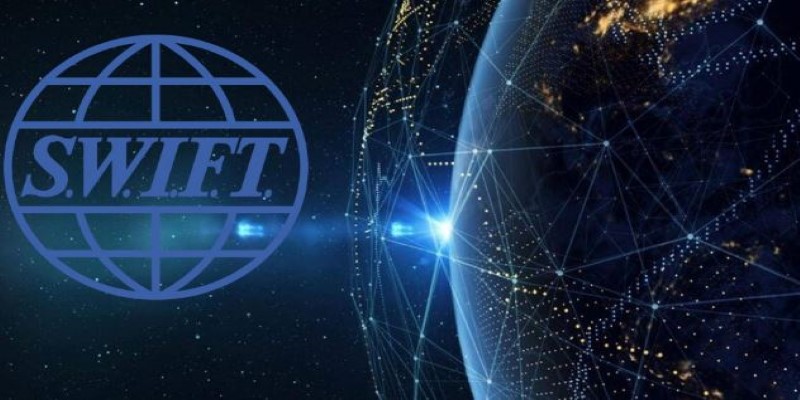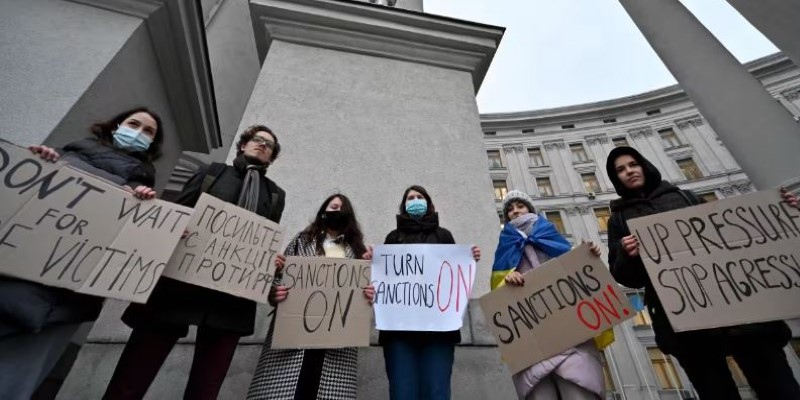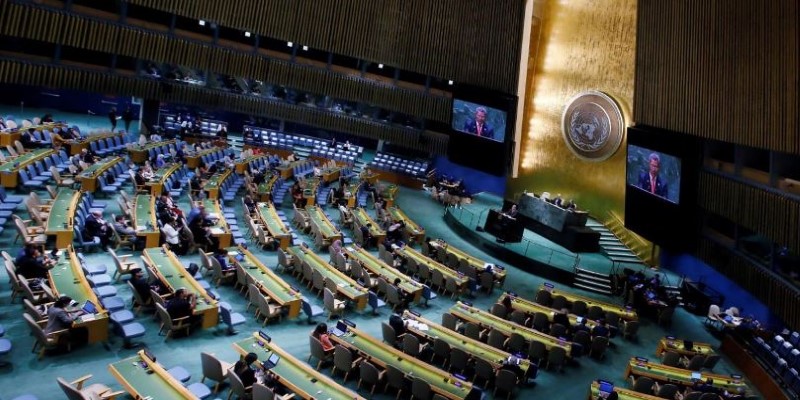The world of international finance may seem abstract and distant to most people, but it's the very mechanism that keeps global commerce, diplomacy, and trade alive. At the heart of this system is SWIFT (Society for Worldwide Interbank Financial Telecommunication), a crucial infrastructure that allows banks to communicate financial transactions securely.

When sanctions are imposed, countries, individuals, or companies often feel their impact through restrictions on access to SWIFT. This interaction between SWIFT and sanctions creates a powerful tool for governments to influence international relations. In this article, well explore how SWIFT and sanctions shape global financial systems, impact economies, and influence the political landscape.
SWIFT is a global messaging system used by banks and financial institutions to securely and efficiently communicate information about financial transactions. It doesnt hold or transfer money itself, but its secure network is the backbone of international financial communication. Through SWIFT codes, banks across the world can send payment instructions, ensuring that money moves from one institution to another safely.
Since its founding in 1973, SWIFT has grown into a global network connecting over 11,000 financial institutions in more than 200 countries. It handles millions of messages daily, making it a cornerstone of the global financial system. For most people, SWIFT is invisible, but it plays a crucial role in facilitating everything from personal remittances to billion-dollar corporate transactions.
Sanctions are economic and political tools used by governments or international bodies to pressure countries, organizations, or individuals to change their behavior. They typically aim to curb activities like nuclear proliferation, or aggressive military actions. Sanctions can take many forms, including trade restrictions, asset freezes, or travel bans, but one of the most impactful forms is exclusion from the SWIFT network.
By cutting off access to SWIFT, sanctioned entities lose their ability to conduct international financial transactions. This limits their ability to engage in global trade, purchase goods, or sell commodities, effectively isolating them from the global economy. SWIFT sanctions have become a preferred tool for countries like the United States and the European Union to exert influence without direct military intervention.
The interaction between SWIFT and sanctions has made SWIFT a geopolitical chess piece. The most prominent example is Iran. In 2012, Iran was disconnected from the SWIFT network as part of broader sanctions aimed at curbing its nuclear program. This cut Iran off from the international banking system, making it difficult for the country to sell oil, conduct trade, or access global financial markets.

This move not only crippled Irans economy but also demonstrated SWIFTs power as a financial weapon. When the U.S. reimposed sanctions on Iran in 2018, the threat of being cut off from SWIFT again loomed large. The effectiveness of such measures has made SWIFT an integral part of modern sanctions regimes.
Heres a brief overview of the pros and cons of SWIFT and sanctions:
Global Standardization: SWIFT provides a standardized communication platform for banks worldwide, facilitating secure and efficient transactions.
Speed and Reliability: The system allows for rapid processing of international payments, significantly reducing transaction times compared to traditional methods.
Security: SWIFT employs advanced encryption and security protocols, ensuring that sensitive financial information remains confidential and secure.
Wide Acceptance: SWIFT is connected to almost all major banks and financial institutions, making it the dominant platform for international money transfers.
Exclusionary Power: SWIFT can be used as a tool for geopolitical leverage, enabling countries to impose sanctions that isolate nations from the global economy.
Limited Alternatives: While alternatives exist, they are not as widely accepted or trusted, which can make countries vulnerable if they are cut off from SWIFT.
Costly Transactions: Fees associated with SWIFT transactions can be high, especially for smaller amounts or less frequently used currencies.
Dependence on Major Economies: SWIFT's operations are influenced by the economic policies of major powers, primarily the U.S., leading to concerns about bias and fairness.
Non-Military Pressure: Sanctions provide a way for countries to exert pressure without resorting to military action, allowing for diplomatic solutions.
Global Accountability: They can promote compliance with international laws and norms and hold countries accountable for actions like human rights violations or aggression.
Economic Impact: Sanctions can effectively cripple an economy, limiting a target country's ability to trade, invest, or access global financial markets.
Signal of Disapproval: They send a clear message that certain behaviors are unacceptable in the international community, potentially influencing change.

Humanitarian Impact: Sanctions can disproportionately affect ordinary citizens rather than political leaders, leading to humanitarian crises.
Limited Effectiveness: Not all sanctions achieve their intended goals, and countries often find ways to circumvent them, reducing their impact.
Strain on Diplomatic Relations: Sanctions can create long-term tensions between countries, complicating future diplomatic efforts.
Economic Backlash: Countries imposing sanctions can also face economic repercussions, particularly if they rely on trade with the targeted nation.
SWIFTs role in international banking goes beyond mere financial transactionsit is a tool of geopolitical influence. When combined with sanctions, SWIFT becomes a powerful mechanism for countries to exert economic pressure on those who challenge international norms. However, as more countries look to reduce their dependency on SWIFT, the global financial system may see increasing fragmentation.
In an interconnected world, the balance between using sanctions to maintain international order and the risk of pushing countries to develop independent systems is delicate. SWIFT will remain central to this conversation, but the future may hold shifts in the global financial landscape as nations explore new ways to insulate themselves from the power of sanctions.

By Pamela Andrew/Dec 07, 2024

By Jennifer Redmond/Oct 14, 2024

By Darnell Malan/Dec 07, 2024

By Sid Leonard/Oct 09, 2024

By Darnell Malan/Apr 02, 2025

By Kristina Cappetta/Nov 13, 2024

By Vicky Louisa/Dec 07, 2024

By Madison Evans/Mar 18, 2025

By Tessa Rodriguez/Dec 16, 2024

By Kristina Cappetta/Nov 09, 2024

By Georgia Vincent/Oct 07, 2024

By Tessa Rodriguez/Oct 13, 2024